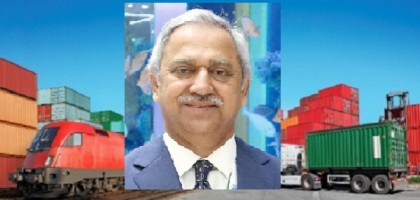Outlook 2019 for the International Logistics and Freight Forwarding

Uncertainties brought about by Trade War
The most concerning factor for global trade in 2018 has, of course, been the prospect of a “trade war” between the world’s two largest economies. From a mere speculation last year, it has become a reality now. As these two leading economies are moving towards imposing tariffs on each other’s trade, worth billions of dollars, the transpacific supply chain and trade routes will face substantial challenges having an impact on our industry.
Raising of tariffs may seem to bring short-term benefits, but in longer terms only damages the countries involved and also damages the global economy at large. In addition, the disruption to the multilateral trade negotiation mechanism would also be effected. FIATA, as the international organization of logistic service providers and freight forwarders, feels that international trade is a fundamental building block for the development and prosperity of every economy and has published a position paper to elaborate this view[1].
We should be hopeful to the trend of globalization will prove unstoppable despite the disruptions and drawbacks. The existing supply chain and value chain will adapt to the new challenges, so will international logistic service providers and freight forwarders. For the coming year 2019, the logistics industry will prepare itself, together with their clients both shippers and consignees, for these challenges.
Further steps to the Digital Era
Technological breakthroughs relevant to the transport and logistics industry seem to have accelerated in the last couple of years, especially in combination with the development of e-commerce. The exciting new concepts like unmanned vehicle, artificial intelligence, Internet of Things, blockchain and big data, give people a closer look at life in the future. The rise of technology start-ups is redefining the business models of the industry, pushing the traditional practitioners to rethink about what they have got used to in the past and what to change in the future.
The transport & logistic industry is examining as well as trying out these new technologies. Some leading enterprises have been testing and commercializing various kinds of autonomous vehicles, driverless robots, blockchain platforms, digital trade documents and so on. These trials require technological and financial resources as well as time and risk tolerance. For small and medium-sized enterprises that possess limited resources, there is no need to be afraid of these technological changes. It would be good to start with upgrading the operative system systematically with new technology, while keeping an eye on the technology development and implementation in the industry. When needed, joining the existing platforms will also be a good choice.
It is one of the goals of FIATA in the upcoming new year to keep the members informed of technological developments in the industry and help prepare them for possible changes. Apart from updates for members in FIATA events, vocational training is critical to keep the industry up-to-date as regards new technology. FIATA is on the march to digitalize the FIATA training courses, starting with two courses: one named “Introduction to Global Logistics Management”, the other “Theory & Practice and Maritime Transport, which will probably be available already at the end of 2018.
UN Sustainable Development Goals and WTO Trade Facilitation Agreement
As mentioned in the FIATA Annual Report 2017-2018[2], FIATA continued its work with the United Nations (UN), the World Trade Organisation (WTO) and other international governmental organizations that have a impact on our industry. FIATA participated in the 3rd annual UN High Level Political Forum in New York to highlight again the importance of trade in achieving 17 Sustainable Development Goals (SDG).
Under the SDG, a critical aspect is sustainable development and therefore sustainable transport and logistics. The International Maritime Organisation (IMO) reached an encouraging agreement earlier this year that carbon emissions from the global shipping industry will be cut by at least half by 2050. FIATA is in full support of this initiative and would be happy to assist members in identifying proper tools to estimate carbon emission of every shipment, so clients are offered different logistic solutions with information about their environmental impacts.
The WTO is also becoming more open for the private sector to engage with trade policy officials on the future of the industry. Now that the WTO Trade Facilitation Agreement (TFA) has been ratified, FIATA encourages all stakeholders in the transport and logistic sector to get involved and ensure that future facilitation measures of countries are welcomed and implemented. As the international logistics and freight forwarding industry is closely related to international trade, FIATA calls for governments to put their commitments under TFA into practice and create a better environment to promote trade and development. Such efforts of FIATA in improving the service level of our industry will definitely be continued and further developed in 2019.
Looking into 2019
In the new year there will be many other factors interacting to impact, shape and define our industry. The recently planned large-scale investments into transport infrastructure initiated across the world will invariably have a profound effect on logistics of tomorrow. The ever-bigger container vessels (19,000 TEU and more) and the forming of shipping alliances will affect the maritime freight market together with revised trade agreements or trade wars. E-commerce will continue to introduce new elements into the traditional procedures of import/export and Customs supervision.
The only unchangeable thing in this world is change itself. FIATA will continue to work together with the industry to help it adapt to this changing business environment and helping it to seize the opportunities.
[1] FIATA Position Paper: Freight Forwarders, Logistics and the Building Blocks of Free Trade, see https://fiata.com/fileadmin/user_upload/The__Building_Blocks__of_Free_Trade.pdf
[1] FIATA Annual Report 2017-2018, see https://fiata.com/fileadmin/user_upload/documents/Annual_Reports/Annual_Report_2017-2018_watermark.pdf























































